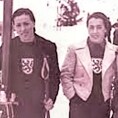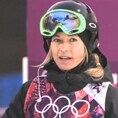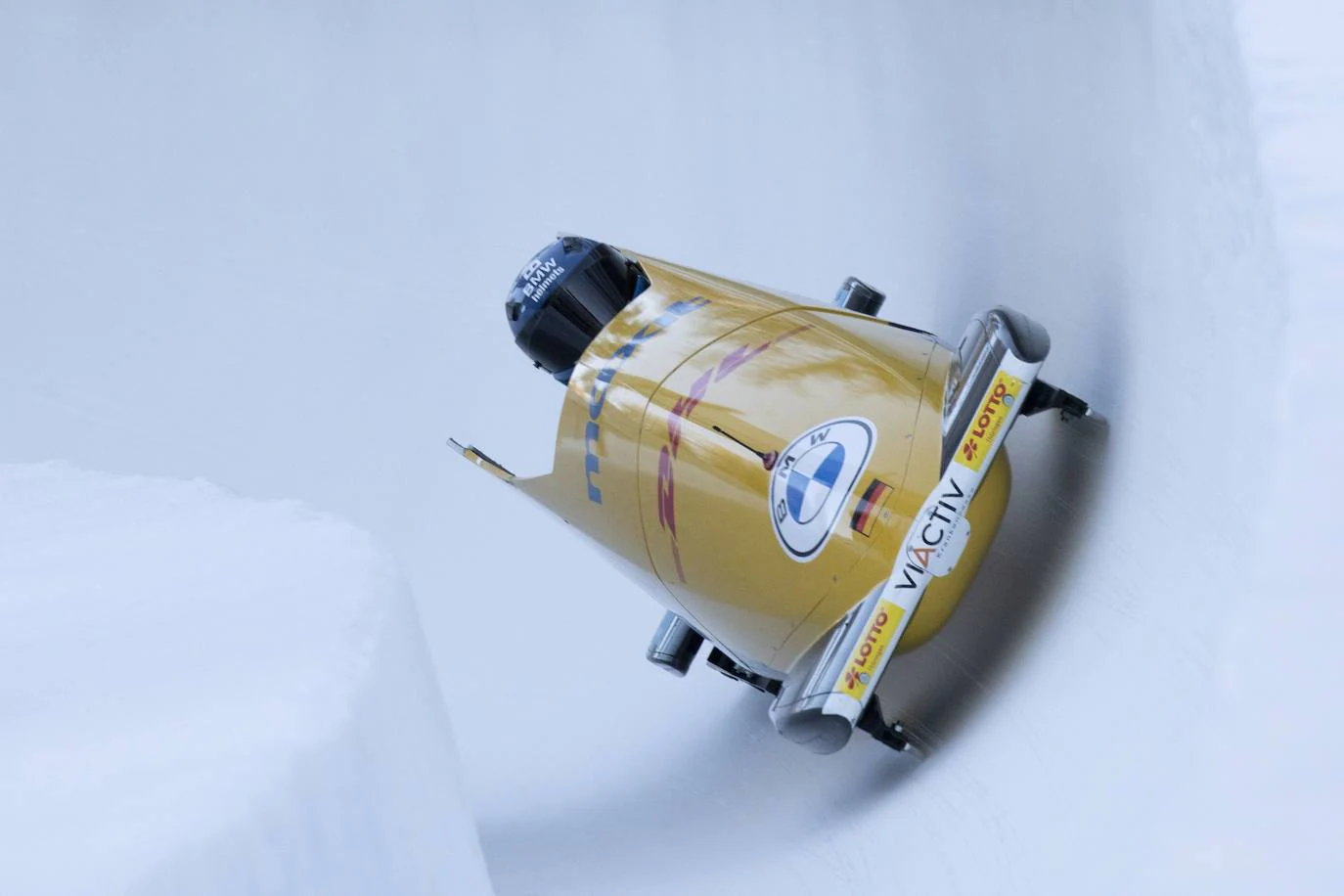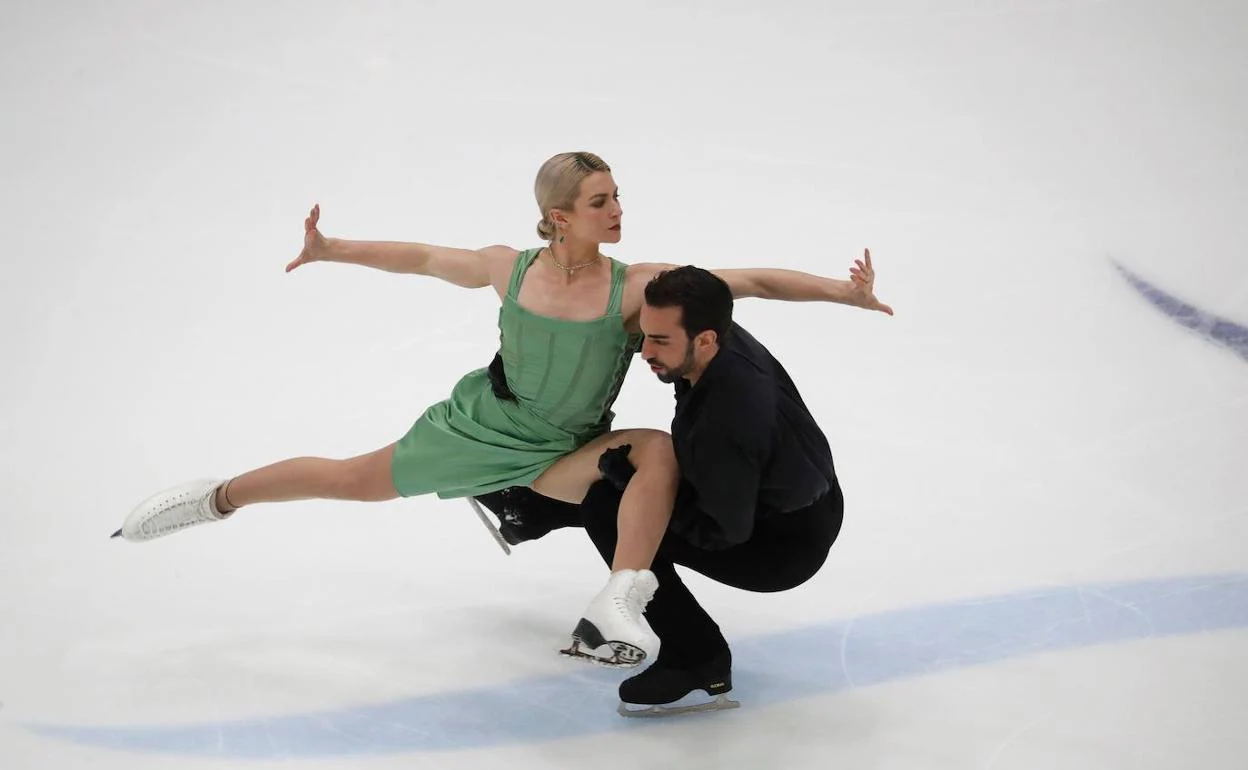Winter Olympics, where women make history
Beijing 2022 ·
Spain's female Olympic history started in 1936 thanks to an Andalusian skier, Ernestina Maenza; this year Spain competes in Beijing with four women, among them British-born skater Olivia SmartALEKK M. SAANDERS
Friday, 4 February 2022, 14:16
Spain participated for the first time in the Olympic Winter Games in 1936, when some 646 athletes (of whom 80 were women) from 28 different countries gathered in Garmisch-Partenkirchen, Germany. The Spanish Republic was represented by four men along with two women. Alpine skiers, Ernestina Maenza and Margot Moles, competed in the new women's combined skiing event which included both downhill and slalom.
The first female Olympic athlete - from Andalucía
Ernestina Maenza was the first Andalusian woman to compete in any Olympic Games. She was born on 22 December 1908 in Lucena, Cordoba province. She learned to ski when she moved to Madrid and in 1935 she became the Spanish national champion which qualified her to participate in the Olympics.
In Garmisch-Partenkirchen Maenza finished in a disappointing 37th place in the downhill competition with a time of 18:51.4. Her poor performance was attributed to a dislocated shoulder that prevented her from competing normally and it was obviously far removed from the 5:04.4 medallist result. Despite this setback, Ernestina, once healed, continued to excel in Spain until 1940, winning four more consecutive national championships. Maenza lived in Madrid almost all of her life and died in the capital in 1995.

Ernestina Maenza (left) is the first Andalusian woman to compete in the Olympics. In 1935, she became the Spanish national champion in Alpine skiing which qualified her to participate in the Olympics
Maenza's fellow Olympian in 1936, Margot Moles, was born in Tarrasa, Catalonia, and specialised in athletics, hockey, swimming and skiing. She was a Republican and also very feminist in her attitude. Once, in an interview, she stressed: “We do not believe in the superiority of the male sex. I believe that there is a formidable backwardness of many centuries that has restrained and diminished our spirit, but history is full of examples that support the thesis that women are endowed with sufficient racial elements to occupy in life a role equal to that of men.”
Two women at the last Winter Olympics
Although Ernestina Maenza and Margot Moles opened the Olympic Spanish path for women in 1936, the Spanish team was without female competitors for six Winter Olympic Games: 1948, 1952, 1956, 1964, 1968 and 1976. And, it was only in 1960 and 1972 in Squaw Valley and Sapporo, that, by the skin of her teeth, just one female participated. In the 80s and 90s the numbers jumped to between three and five with the highest number of female athletes being in Turin. In 2006, Spain's team had women as a majority - 7 men and 9 women. However, in 2018, the Winter Olympic in Pyeongchang reverted back to the low quota of only two women just as it was in 1936.
The first female medallist
Thirty years ago, the Olympic Games in Albertville went down in history when Spain received its first women's winter medal, when Blanca Fernández Ochoa managed to display Spain's traditional strength in alpine skiing.

At Albertville 1992, her fourth Olympics, Blanca Fernández Ochoa won bronze, becoming Spain's first, and still only, Winter Olympic female medallist
Blanca was born in Madrid into a famous family of skiers, the Ochoas (her brother was an Olympic champion). She took part in four Winter Olympics, going to Lake Placid, when she was 16. It was during her last Olympic Games, held in Albertville in 1992, that she received her bronze medal, becoming Spain's first, and still only, Winter Olympic female medallist. Blanca
The English-Spanish representative
The Beijing Olympic Winter Games introduces the new monobob competition - an individual event exclusive to female athletes.
Half-pipe skiing made its Olympic debut at the 2014 Winter Olympics in Sochi. According to the quota allocation, Spain had one qualified athlete position and it was given to Katia Griffiths representing a club in Navarra.

Katia Griffiths' mother is from Galicia and her father is from the United Kingdom. At Sochi 2014 she participated as a Spaniard and finished 16th
Katia was born on 4 August, 1982, in London. Her mother is from Galicia and her father is from the United Kingdom. Katia once stressed that she felt more from Vigo than from her father's British homeland. At Sochi 2014 she participated as a Spaniard and finished 16th.
For Britain and for Spain
Spain's 2022 Winter Olympics teams consists of ten men and four women, competing in six sports. One of the women is ice dancer Olivia Smart who previously competed for the UK and now represents Spain.

Olivia Smart was born in Sheffield England on 1 April 1997. She teamed up with Joseph Buckland in 2010 and they became three-time British national junior champions. Olivia and Joseph reached their best international result being in the top 10 at the World Junior Championships, in 2014.
However, on 13 December 2015, it was announced that Smart had teamed up with Spanish ice dancer Adrián Díaz and that they wished to represent Spain. On 15 January 2016, the British skating association released her, and Smart and Díaz started training in Montreal.
At the 2022 Winter Olympics in Beijing, the Spanish team, will consist of ten men and four women, competing in six sports
Smart became a Spanish citizen in July 2017 and she is now a three-time Spanish national champion. At their second Grand Prix, 2021 Skate Canada International, Smart and Díaz were third in both segments of the competition, winning the bronze medal.
The British-Spanish ice dancer and her Spanish partner are eagerly looking forward to the competition that starts for them in Beijing, when the pair perform their rhythm dance on the ice of the Capital Indoor Stadium on 12 February.
